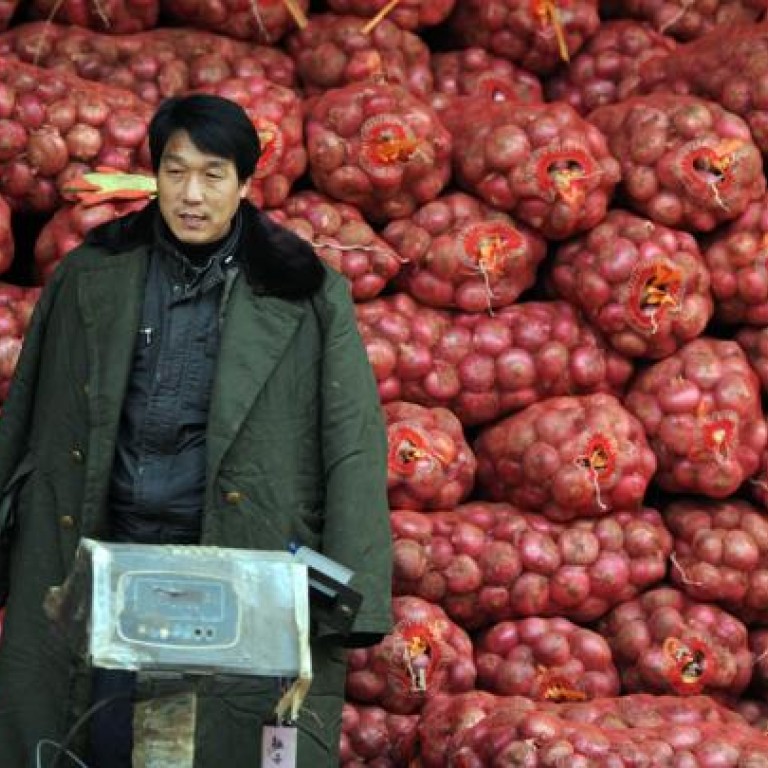
Inflation, trade drive yuan to 19-year US$ high
But euro zone's woes cast shadow over prospects for sustained export growth
The yuan strengthened to less than 6.22 against the US dollar yesterday for the first time in 19 years, as bullish sentiment was boosted by mainland inflation and trade data.
The currency touched 6.2155 against the greenback in intraday trading - its strongest level since 1993 - after the People's Bank of China set the reference rate 0.13 per cent lower than Thursday at 6.2712 per dollar in response to an overnight fall in the US dollar.
The yuan is allowed to trade up to 1 per cent on either side of the daily fixing.
"Markets have turned increasingly bullish recently on the yuan and some key commodities, such as iron ore, on China's rebounding growth," said Lu Ting, an economist at Bank of America Merrill Lynch.
The mainland economy is widely believed to be on track for a recovery from slower growth of 7.4 per cent in the third quarter of last year.
Official data released yesterday showed consumer prices rose 2.5 per cent year on year last month, compared with 2 per cent in November, raising the need for currency appreciation to ease inflation, traders said.
Trade data for last month surprised on the upside by a big margin when it was released on Thursday, lending support to the yuan.
Export growth jumped to 14.1 per cent year on year from 2.9 per cent in November, while the trade surplus widened to US$31.6 billion from US$19.6 billion.
"However, the room for further [yuan-US dollar] appreciation should be limited, as Beijing remains cautious about China's export prospects in 2013," Lu said.
Taiwan's dollar rose yesterday to a 16-month high and was poised to make a second weekly gain as investors expect demand for the island's exports to improve as the mainland's economic growth gains momentum.
The appreciation of the yuan, which strengthened about 0.23 per cent this week, was forced by quantitative easing in developed countries, former vice-minister of commerce Wei Jianguo said.
"Quantitative easing is printing money. A large amount of money is pouring into China, forcing Beijing to allow the yuan to appreciate," Wei told a forum in Beijing yesterday.
"However, a strengthening yuan would be a disaster for China's exporters. This year, currency policy will be very difficult because of this dilemma."
The country's economic fundamentals did not support a solid advance of the yuan, because the rebound in exports was unlikely to persist, Wei said.
He said measures adopted since October helped boost exports by lowering customs fees. Looking ahead, the export situation was still overshadowed by the uncertainties of the European debt crisis, he said.

